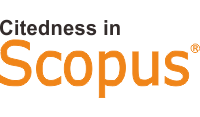Yelim Philanthropy: Exploring Social Cohesion and Alignment with Sharia Economic Law in Kei Society
DOI:
https://doi.org/10.46870/milkiyah.v4i1.1470Keywords:
Yelim, Customary Philanthropy, Legal Consciousness, Interfaith Solidarity, Sharia Economic LawAbstract
The practice of Yelim as a form of interfaith philanthropy has yet to be scrutinised in the intersecting fields of legal sociology and Islamic economic law. The purpose of this study is to reveal the practice of Yelim in encouraging legal consciousness and social cohesion in the Kei Community and to show the harmony of its practice under the principles of Sharia economic law. This study is qualitative research under the phenomenological approach to deeply interpret the practice of Yelim with a focus on philanthropy, and fund management. Data were obtained through interviews, observation and documentation. The results disclose that Yelim is undertaken accountably by traditional figures and community members. The funds have been used for social purposes, including weddings, funerals, religious buildings, and education support. The philanthropy of both Muslims and Christians in the collection and utilisation exemplifies social solidarity and the principle of distributive justice. According to Islamic economic law, the philanthropy management has been in line with maqāṣid al-sharī'a in the principles of Hifzh al-Nafs and Hifzh al-Māl, linking to maslahah, trust, humanity and justice. The tradition undertaken has shown the legal awareness rooted in social norms and ancestral values, not merely formal legal texts. Yelim serves as a model for integrating customary law and Sharia economic principles in multicultural communities.
References
Abdoeh, N. M. (2020), Hibah dalam tinjauan KHI, KUH perdata, sosiologis dan filosofis. Salatiga: LP2M Press Ali Geno Berutu.
Al-Jeresy, Khalid bin Abdurrahman. (2009). Hukum Membangun Gereja di jazirah Arab, Terjemahan Muhammad Iqbal A. Gazali. IslamHouse.com. accessed on 9 September 2024 https://d1.islamhouse.com/data/id/ih_fatawa/single/id_Hukum_Membangun_Gereja_di_Jazirah_Arab.pdf
Alam, I., & Bhatti, . I. B. (2024). Interacting with Muslim Customers for Developing New Shariah-Compliant Financial Services in a Multicultural Country. European Journal of Islamic Finance, 11(1), 1–16. https://doi.org/10.13135/2421-2172/9359
Almayez, M. (2022). Investigating the place of religion within the professional identity construction of two Muslim English language teachers in Saudi Arabia. Cogent Education, 9(1). https://doi.org/10.1080/2331186X.2022.2091632
Amelia, R., & Imamah, F. (2024). Analysis of The Basic Concepts of Islamic Entrepreneursip; Expert Views and Theories of Entrepreneurship. IJESBAM: International Journal of Economics, Sharia Banking and Management, 1(1), 13-32. Retrieved from https://ejournal.stebisigm.ac.id/index.php/ijesbam/article/view/1116
Anders, G. (2024). A tribute to Keebet: putting the social in the study of law. Legal Pluralism and Critical Social Analysis, 56(3), 639–642. https://doi.org/10.1080/27706869.2024.2370164
Arifinsyah, A., & Sofian, A. (2021). Regulation on worship house establishment and implication towards minority relation of religious people majority in Indonesia. International Journal of Social Sciences, 4(1), 106-113.
Chapra, M. U. (2001) Masa Depan Ilmu Ekonomi: Sebuah Tinjauan Islam, Cet 1, Jakarta: Gema Insani
Fahimah, I. (2018). Akomodasi Budaya Lokal (Urf ) Dalam Pemahaman Fikih Ulama Mujtahidin.” Jurnal Ilmiah Mizani Wacana Hukum Ekonomi Dan Keagamaan 5(1). https://doi.org/10.29300/mzn.v5i1.1433
Fathoni, T. (2024). The Concept of Indonesian Character Education: Emile Durkheim's Perspective. Jurnal Bahasa Dan Sastra, 12(1), 46-56. https://doi.org/10.60155/jbs.v12i1.448
Fauzia, A., Hamdani, F., & Octavia, D. (2021). The revitalization of the Indonesian legal system in the order of realizing the ideal state law. Progressive Law Review, 3(01), 12-25. https://doi.org/10.36448/plr.v3i01.46
Friedman, L. M., & Harry N. Scheiber. (2021). Legal Culture and the Legal Profession. London: Routledge eBooks. https://doi.org/10.4324/9780429047428
Hamdi, W. B., Aderibigbe, S. A., Idriz, M., & Alghfeli, M. M. (2024). Faith in Humanity: Religious Charitable Organizations Solidarity towards Migrants in the United Arab Emirates. Religions, 15(3), 266. https://doi.org/10.3390/rel15030266
Harbelubun, Y. (2017). Membangun Persaudaraan Lintas Iman Dengan Berbasis Pada Kebudayaan Masyarakat Adat Kei. Gema Teologika Jurnal Teologi Kontekstual Dan Filsafat Keilahian 2(1), 75-96 https://doi.org/10.21460/gema.2017.21.279
Huberman, A. M., & Miles, M. B. (Eds.) (2002). The qualitative researcher's companion. SAGE Publications, Inc., https://doi.org/10.4135/9781412986274
Ikbal, A.F.H. (2020). Moralitas Kemanusiaan Berdasarkan Fakta Sosial Émile Durkheim Dan Ayat-Ayat Sosial M. Quraish Shihab. Jurnal Al Ashriyyah 6(2). 77–93. https://doi.org/10.53038/alashriyyah.v6i02.133
Janah, Unun Roudlotul & Humaidi, Muchtim. (2021). Filantropi Pada Masyarakat Multikultural: Upaya Mewujudkan Kemadirian Ekonomi dalam Harmoni. Ponorogo: CV. Nata Karya
Kabakoran, A, (2017). Reproduksi Sosial Tradisi Ye Lim Dan Nit Ni Wang Pada Masyarakat Kei Kota Tual. Yogyakarta: Deepublish.
Khotimah, K. (2023). Analisis Praktek Waqf Al Nuqud (Wakaf Uang) Perspektif Hukum Islam (Kajian Mazhab Syafi’i dan Hanafi). Rawamangun Jurnal Ilmiah Research and Development Student, 1(2), 1–14. https://doi.org/10.59024/jis.v1i2.306
Leisubun, G. (2021) Bupati Hanubun: Tradisi “Yelim” Merupakan Kekayaan Masyarakat Suku Kei. Malukupost.com 13 Juni 2021, https://malukupost.com/2021/06/bupati-hanubun-tradisi-yelim-merupakan-kekayaan-masyarakat-suku-kei/
Lonthor, A. (2020). Peran Pendidikan Multikultural Dalam Menciptakan Kesadaran Hukum Masyarakat Plural. Tahkim, 16(2), 197-212. https://doi.org/10.33477/thk.v16i2.1724
Marcucci, N. (2022). Justice as Institution Solidarity and the Obligation of Modern Societies According to Durkheim. In G. Fitzi & N. Marcucci (Eds.), The Anthem Companion to Émile Durkheim (pp. 155–174). Chapter, Anthem Press.
Mardani. (2015). Fiqh Ekonomi Syariah, Cet. ke-3, Jakarta : Kencana Prenada Media Group
Mazumdar, S., & Mazumdar, S. (2001). Rethinking Public And Private Space: Religion And Women In Muslim Society. Journal of Architectural and Planning Research, 18(4), 302–324. http://www.jstor.org/stable/43031047
Motulsky, S. L. (2021). Is member checking the gold standard of quality in qualitative research? Qualitative Psychology, 8(3), 389–406. https://doi.org/10.1037/qup0000215
Murodi. (2021). Dakwah Dan Filantropi Jalan Menuju Kesejahteraan Umat: Edisi Kedua. Jakarta : Prenada Media.
Nopriyasman, N., Asnan, G., Ferdinal, F., Zahid, I., & Ritonga, A. H. (2025). Minangkabau philanthropy: The spirits and behaviours of generosity of the Nagari communities in facing natural disasters. In E3S Web of Conferences (Vol. 604, p. 02007). EDP Sciences.
Nugmanovna, M. A. (2021). The role of legal consciousness and legal culture in the education of the individual. Asian Journal of Research in Social Sciences and Humanities, 11(11), 286-294. https://doi.org/10.5958/2249-7315.2021.00229.X
Naraha, FM, Rahail, J., Maswatie, E., & Tuankotta, AR (2024). Yelim dan Maren sebagai Perwujudan Civic Responsibility Masyarakat Dusun Watran di Kota Tual. Sosio-Didaktika: Social Science Education 11(2), 231- 248.
https://doi.10.15408/sd.v11i2.40689
Özalp, Ahmet. (2023). Eugen Ehrlich Sosyolojisinde Yaşayan Hukuk Kavramı. Eskişehir Osmangazi Üniversitesi İlahiyat Fakültesi Dergisi 11(1), 14–36. https://doi.org/10.51702/esoguifd.1380652
Rado, R.H & B. R.M.N. (2023). Anti-Corruption Culture: Maren and Yelim’s Perspective on Kei Society. SASI 29(1), 124-133 https://doi.org/10.47268/sasi.v29i1.1283
Rahman, M.M., Razimi, M.S.A., Ariffin, A.S. et al. Navigating moral landscape: Islamic ethical choices and sustainability in Halal meat production and consumption. Discov Sustain 5, 225 (2024). https://doi.org/10.1007/s43621-024-00388-y
Raimi, L., Abdur-Rauf, I.A. and Olaide Raimi, B. (2025), "Interdependence of halal entrepreneurship and Islamic finance for creating a strong halal ecosystem", Journal of Islamic Marketing, Vol. 16 No. 3, pp. 929-954. https://doi.org/10.1108/JIMA-05-2023-0162
Rumra, M. Y., Awaluddin, S., & Gani, E. S. (2024). Keselarasan Budaya Hukum dan Prinsip Perbankan Syariah pada Masyarakat Multireligius di Kepulauan Kei, Maluku. SOSHUMDIK Jurnal Riset Sosial Humaniora dan Pendidikan, 3(4), 01-12. https://doi.org/10.56444/soshumdik.v3i4.2611
Sujoko, A. (2011). Talking culture: Indonesian community radio and the active audience [Paper in themed section: Shifting Cultures. George, Jodie; Pacella, Jessica and Roberts, Rosie (eds).]. Social Alternatives, 30(2), 16–20. https://search.informit.org/doi/10.3316/ielapa.201109576
Sulistiyo, U. (2023). Metode Penelitian Kualitatif. Jambi : Salim Media Indonesia.
Sunier, T. (2005). Constructing Islam: Places of Worship and the Politics of Space in The Netherlands. Journal of Contemporary European Studies, 13(3), 317–334. https://doi.org/10.1080/14782800500378409
Syahruddin, E. (2023). Perilaku Hukum: Suatu Pembelajaran Kritik Hukum Dari Pandangan Sosial - KD. Yogyakarta: Jejak Pustaka
Syamlan, Y.T, Wahyuni, S., Heruwasto, I. and Hamsal, M. (2025), "Exploring sharia compliance parameters in marketing to foster innovation and collaboration within Islamic finance", Journal of Islamic Marketing, Vol. ahead-of-print No. ahead-of-print. https://doi.org/10.1108/JIMA-04-2024-0172
Syamsarina, M. I., Arzam, D., & A, Ari Bakti Windi. (2022). Kesadaran Hukum Dan Kepatuhan Hukum : Analisis Faktor Yang Mempengaruhi Kesadaran Hukum Dan Kepatuhan Hukum Masyarakat. Jurnal Selat 10(1) 81–90. https://doi.org/10.31629/selat.v10i1.5216.
Syifa, S. Z. I., Sopanah, A., Anggarani, D., & Hasan, K. (2023). Mengungkap Praktik Akuntansi Budaya Dalam Upacara Adat Pelantikan Orang Kay Suku Kei Maluku. Owner : Riset Dan Jurnal Akuntansi, 7(3), 1999-2009 https://doi.org/10.33395/owner.v7i3.1518
Thalib, M. A., Sujianto, A. N., Sugeha, H. F., & Huruji, S. (2023). Studi Etnometodologi Islam: Mengupas Praktik Akuntansi berbasis Nilai Budaya Lokal. Jurnal Buana Akuntansi, 8(2), 90-101. https://doi.org/10.35912/jakman.v4i4.2375
Toisuta, H., & Kabakoran, A. (2015). Yelim and NIT NI Wang Islamic Community in the circle of life Kei city of Tual. IJARSSH, 4(10), 126-130.
Turner, B., & Wiber, M. (2024). Introduction to special issue: Keebet von Benda-Beckmann, intellectual legacy. Legal Pluralism and Critical Social Analysis, 56(3), 303–327. https://doi.org/10.1080/27706869.2024.2423473
Yoserwan, (2023). Eksistensi Hukum Pidana Adat Dalam Hukum Pidana Nasional Setelah Pengesahan Kuhp Baru. UNES Law Review 5(4). 1999–2013. https://doi.org/10.31933/unesrev.v5i4.577
Szilágyi, I. H. (2022). Social Legal Consciousness or Legal Culture?. Public Governance Administration and Finances Law Review, 7(2), 5-39. Pub. Governance, Admin. & Fin. L. Rev., 7, 5. https://doi.org/10.53116/pgaflr.2022.2.1
Downloads
Published
How to Cite
Issue
Section
License
Copyright (c) 2025 Syah Awaluddin, Eka Dahlan Uar, Soeleman Djaiz Baranyanan, Nurhayati , Mohamad Fairuz Bin Ali

This work is licensed under a Creative Commons Attribution-ShareAlike 4.0 International License.

















